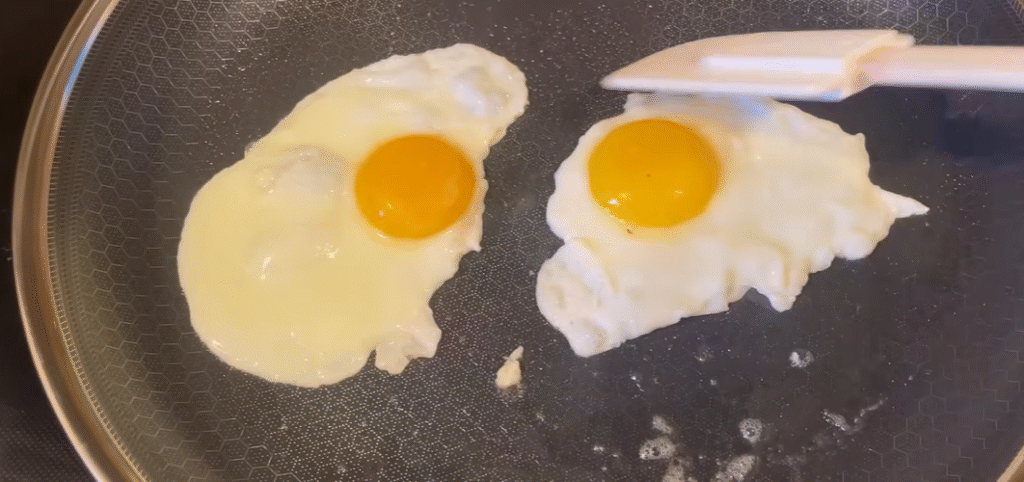For a long time, HexClad has been promoted as a brand that combines the convenience of nonstick cooking with the gleam of stainless steel. After celebrity chef Gordon Ramsay endorsed it, its cookware shone on Instagram feeds, cooking shows, and celebrity kitchens. However, when a $2.5 million class action lawsuit claimed that HexClad’s claims of being “non-toxic” and “PFAS-free” were false, the optimism surrounding its hybrid technology took a drastic turn.
The lawsuit questioned not only the veracity of product labels but also the notion that safety and innovation could coexist peacefully and unaccountably. Consumers thought they were spending money on cookware that would be durable, effective, and healthy. Rather, the lawsuits claimed that some HexClad pans included “forever chemicals,” or PFAS chemicals, which are connected to health and environmental issues.
A topic of discussion among legal experts and foodies alike is this lawsuit. Because of its wider ramifications, many people consider it to be especially important. After all, cookware plays a personal role in everyday life; it is meant to feed families, not to cause worry about hidden poisons. Customers who shelled out hundreds of dollars for a single pan were purchasing trust rather than just metal. The response is strong when that trust is betrayed, even in a subtle way.
The case documents state that customers who purchased qualifying HexClad products between February 2022 and March 2024 are entitled to reimbursement claims. Even buyers of a single product can take part without receipts, but those with proof of purchase for several products may get bigger payouts. The settlement administrator has given consumers one last chance to seek redress by setting a claim deadline of November 14, 2025.
HexClad Cookware – Key Information
| Brand Name | HexClad Cookware Inc. |
|---|---|
| Headquarters | United States |
| Founded / Operates Under | One Source to Market, LLC d/b/a HexClad Cookware |
| Core Product | Hybrid stainless‐steel / nonstick cookware |
| Endorsements | Celebrity chef Gordon Ramsay among others |
| Legal Matter | Settlement fund of $2,500,000 in class action alleging misleading “non-toxic”, “PFAS/PFOA free” claims. Top Class Actions+2Top Class Actions+2 |
| Claim Period | Purchases between February 1, 2022 and March 31, 2024 Top Class Actions+1 |
| Official Settlement Site | https://www.hexcladsettlement.com hexcladsettlement.com |

This case is especially instructive because it reflects a more general marketing conundrum. Like “organic” used to be for food, “non-toxic” has become the gold standard in consumer branding over the last ten years. The HexClad settlement, however, demonstrates how difficult it can be to distinguish between convenient marketing and true environmentally conscious manufacturing.
HexClad has avoided a drawn-out legal battle by agreeing to a settlement without acknowledging wrongdoing, but the reputational cost is still significant. In its statement, the brand acknowledged that the settlement was a “business decision” but expressed confidence in the safety of its products. In many respects, it’s a practical decision that frees up the business to concentrate on operations rather than litigation. However, the story has left consumers wondering what “PFAS-free” actually means in real life.
Legally speaking, this case is consistent with an increasing trend of consumer protection lawsuits. Cookware manufacturers are now being scrutinized, much like beverage companies were for their “natural” claims and skincare brands for their “chemical-free” claims. The court’s April 2025 preliminary approval and September 2025 final hearing highlight the growing industry-wide accountability in marketing.
It’s interesting to note that product controversies have previously criticized celebrity endorsements. Gordon Ramsay, the well-known collaborator of HexClad, was indirectly linked to customer dissatisfaction. Despite not being a party to the lawsuit, Ramsay’s affiliation serves as a reminder of how brand ambassadors can increase the risk and prestige of marketing. The radiance of endorsements quickly wanes when a product fails.
This tension has been exacerbated by social media platforms. Users shared tales of pans losing their coating or feeling duped by “forever chemical-free” claims on Reddit and cookware forums. While some were disappointed, others remarked that HexClad’s hybrid design continued to function well in regular cooking. The essence of contemporary consumer relationships is encapsulated in this conflicting sentiment: accountability and admiration.

